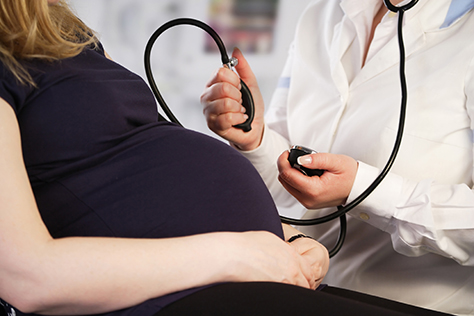Pre-eclampsia check advised for pregnant women
New guidelines advise a simple test to help spot pre-eclampsia earlier

New draft guidelines for England have revealed that pregnant women should be offered a straightforward blood test from the NHS that could detect pre-eclampsia.
The National Institute for Health and Care Excellence (NICE) has made the recommendation in new guidelines as pre-eclampsia affects as much as 6% of pregnancies and identifying it early can save lives.
The placental growth factor (PLGF) is already being used in many hospitals in England. The test checks how healthy the placenta is which is how the unborn baby receives oxygen and nutrients in the womb.
Using the PLGF can ascertain early if there are any concerns of pre-eclampsia and allows earlier medical assistance if necessary.
The way it does this is by the protein PLGF assisting in developing new blood vessels in the placenta as abnormally low levels can show developmental problems in the placenta.
The advice is midwives can add this check to other checks they do on pregnant women in a bid to spot the potentially dangerous condition earlier.
If pre-eclampsia is identified, women can receive the closer monitoring sooner as the results from the test can be obtained the same day.
Spokesperson for NICE, Jeanette Kusel said: “These tests represent a step change in the management and treatment of pre-eclampsia.
"This is extremely valuable to doctors and expectant mothers as now they can have increased confidence in their treatment plans and preparing for a safe birth."
What happens if I have pre-eclampsia?
If your midwives think you are at a risk of pre-eclampsia, they might advise you to take a low-dose aspirin from week 12 of your pregnancy onwards.
If you are diagnosed with pre-eclampsia, you will be assessed to see how serious your condition is, and your doctors will decide whether you need to be monitored in hospital. Pre-eclampsia can cause your baby to grow more slowly, and could lead to it having an oxygen deficiency.
You might be given drugs to lower your blood pressure, but there is no actual cure for pre-eclampsia – it only goes away once your baby has been born, so the decision might be made to deliver you early.